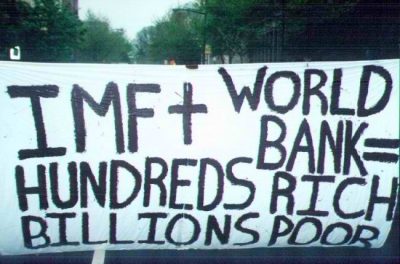The Prevailing Relevance of Dependency Theories in Caribbean Development

The governments of the Caribbean have been experimenting with several models of development in order to balance dual priorities of economic growth and human development. However, the discourse and practice of development continue to be centred around the “logic of the free market”. Although, varying degrees of liberal models of development have increased foreign direct investment, trade, entrepreneurial initiatives, internet penetration and possibilities for co-operation, they have failed to incorporate the importance of people’s lives.
Alternative models of development which emphasize the incorporation of respecting human rights and expanding privileges for all citizens are not widely accepted. This is due to the collapse of the welfare state model and the fact that development is constructed based on the ideological overtones of powerful global interests. Furthermore, our leaders lack political will-power and a transformational approach to governance and, hovering above all these contemporary challenges in Caribbean development is structural dependency.
The Dependency theory has a prevailing relevance in explaining the persistent poverty and underdevelopment of the Caribbean. While the theory fails to prescribe solutions and constantly stresses the exploitation of the South by the North, the theory’s excellent grasp of the historical experiences of developing countries of the South must be commended.
The peculiar experiences of slavery and colonialism play an influential role in the geo-political and economic praxis of the small island developing states. Development served the interests of the international financial elite by exporting raw materials and mono crops. The domestic economies were and still continue to be vulnerable in the global political economy because they are reliant on agriculture and services sectors which lack diversification. This also makes them susceptible to fierce competition and external shocks such as economic crises and recessions which eventually have a ripple effect on the general populations.
Caribbean economist, Norman Girvan (2012) explained that Caribbean states entered the world as plantation economies… their development is characterized by growth without development, adjustment without transformation and export without diversification”. Hence, Girvan’s profound statement unveils the deliberate marginal progress of Caribbean development because dependency is both structural and psychological.
In the structural context, examples such as St. Vincent and the Grenadines and Jamaica can be cited. While St. Vincent and the Grenadines has fully liberalized trade regime and is a member of the World Trade Organization and it has experienced a boost in foreign direct investment, the 2013 IMF Report categorizes it as a country with limited trade competitiveness and high debt ratio to Gross Domestic Product (GDP). The 2017 Caribbean News Now also reports that it has a high food import bill of US $440 billion while the 2016 Caribbean Human Development Report shows where unemployment and poverty is over twenty per cent (20%). On the other hand, Jamaica has received US $2.3 billion in foreign direct investments and trade but the 2017 World Bank Overview validates its anemic growth and its unsustainable debt. This also undermines its human development indicators such as health, education and income where the 2014 Standard of Living Survey illustrates growing poverty levels due to increases in cost of living.
Thus, the structural context can be interpreted from several angles. One can argue that the structure of the international system is favourable to wealthy, industrialized nations who create regimes that fulfill their self-interests and therefore, Caribbean states will always be at a disadvantage. One can argue that Caribbean states have not effectively re-structured their productive sectors. One can argue that the development models of the Caribbean lack a critical understanding of the nexus between human development and economic growth and as a result, both priorities continue to be at great risk. One can also argue that, the internal politics of the Caribbean, whether as individual states or in the collective context of CARICOM, usually determine how development is conceptualized and implemented. Robert Buddan (2007) rightfully pointed out that the technocrats in various areas of public policy in government are limited to routine rather than creativity in their policy options. Consequently, this affects the potential of transformation in Caribbean development because small states have relegated themselves to an “average status” rather than offering extraordinary models of development to their citizens and the world.
From a psychological perspective, Caribbean states feel that they lack the resources and internal capabilities to obtain security. This state of mind is mirrored on the over reliance on international aid and partnerships with larger states and international organizations in order to finance development. This state of mind stems from colonialism in which prescriptions and constructs from external sources are more valued than domestic solutions to domestic challenges. Hence, Dr. Jennifer Mohammed (2007) sees
“dependency as a psychological condition in which the colonizer is seen as the legitimate sources of ideas”.
Legitimacy can only be approved through a hegemonic relationship whereby the dominant sub-ordinates the less dominant. The less dominant gives influence to the dominant through the act of submission. History us has allowed us to see the transition from one plantation experience to another. Caribbean states and their leaders refrain from owning their right to a model of development that links economic growth and human development using a bottom-up approach instead of a traditional elitist approach. Why must we subject ourselves to the position of ‘serving’? Why must we continue to embrace a model of development through submission to foreign constructs? Is it cowardice or is it a survival strategy? What are our mistakes and where do we go from here?
*
Tina Renier lives in Jamaica and is currently a final year student at the University of the West Indies, Mona pursuing a Bachelor of Science in International Relations.
Featured image is from Atlanta Black Star.

